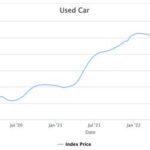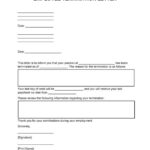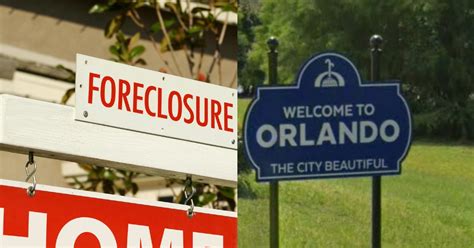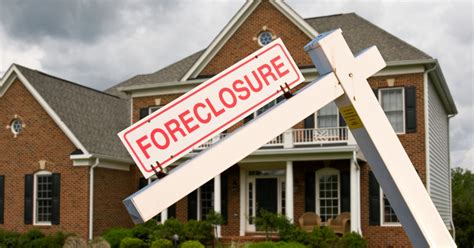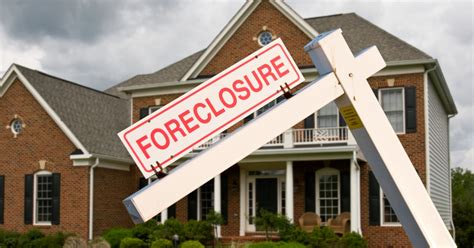
Florida’s Cape Coral-Fort Myers metro area is grappling with the highest foreclosure rate in the United States, driven by factors including the aftermath of Hurricane Ian, rising insurance costs, and a significant influx of new residents who may have overextended themselves financially.
The southwest Florida region has become the epicenter of a foreclosure surge, standing in stark contrast to national trends that show foreclosure rates remaining relatively stable. According to recent data, Cape Coral-Fort Myers has a foreclosure rate of one in every 2,171 housing units, the highest among all metro areas in the country. This figure is considerably higher than the national average, raising concerns about the area’s economic stability and the financial well-being of its residents.
“This Florida metro is the foreclosure capital of the U.S.,” according to Yahoo Finance’s analysis of the troubling trend. The factors contributing to this crisis are multifaceted, but several key drivers have been identified.
Hurricane Ian’s Lingering Impact
One of the most significant contributors to the foreclosure surge is the lingering aftermath of Hurricane Ian, which devastated the region in September 2022. The Category 5 storm caused widespread damage to homes and infrastructure, leaving many residents struggling to rebuild their lives.
“The biggest reason why we’re seeing the increase in foreclosures in the Cape Coral and Fort Myers area is simply because of Hurricane Ian,” said Alexis Black, a local real estate agent. “A lot of homes were damaged, some were completely destroyed, and a lot of people were left without insurance or the means to repair their homes.”
Many homeowners who lacked sufficient insurance coverage or were underinsured found themselves unable to afford the necessary repairs. This financial strain, coupled with displacement and job losses in the storm’s wake, made it difficult for many to keep up with their mortgage payments. The delay in initiating foreclosure proceedings immediately after the hurricane, due to moratoria and temporary relief measures, has now resulted in a backlog of cases entering the system.
Escalating Insurance Costs
Even before Hurricane Ian, Florida’s insurance market was facing challenges, with rising premiums and limited coverage options. The storm exacerbated these issues, leading to even higher insurance rates and, in some cases, the complete withdrawal of insurers from the region.
“Insurance rates in Florida were already astronomical before the hurricane,” explained Michael Trigg, a financial advisor based in Fort Myers. “Now, they’re simply unaffordable for many homeowners. People are having to choose between paying their mortgage and paying their insurance, and many are falling behind on both.”
The increasing cost of insurance has placed an additional burden on homeowners, making it more difficult to maintain their properties and meet their financial obligations. This issue is particularly acute for those on fixed incomes or with limited financial resources.
Influx of New Residents and Financial Overextension
Cape Coral-Fort Myers experienced a significant influx of new residents in recent years, drawn by the area’s relatively affordable housing market and desirable lifestyle. However, this influx also brought with it a wave of speculative investments and potentially unsustainable borrowing practices.
“We saw a lot of people moving here from other states, buying homes at inflated prices, and taking out mortgages that they couldn’t really afford,” said Sarah Johnson, a local real estate analyst. “When the market started to cool down, and interest rates began to rise, many of these homeowners found themselves in a difficult position.”
Some new residents may have overextended themselves financially, relying on short-term gains and unsustainable income projections. As the housing market has softened and economic conditions have become more uncertain, these homeowners have struggled to keep up with their mortgage payments.
National Context and Comparisons
While Cape Coral-Fort Myers is experiencing a foreclosure surge, the national foreclosure rate remains relatively low. According to ATTOM Data Solutions, the national foreclosure rate in May 2024 was one in every 7,865 housing units. This indicates that the problems in Cape Coral-Fort Myers are localized and driven by specific regional factors.
“While foreclosure activity is trending upward compared to last year, it’s still significantly below pre-pandemic levels,” said Rob Barber, CEO of ATTOM. “This suggests that the housing market remains relatively stable, and the increase in foreclosures is likely due to the winding down of pandemic-related foreclosure moratoriums and other government programs.”
The disparity between the national trend and the situation in Cape Coral-Fort Myers highlights the unique challenges facing the region. While the national economy has shown resilience, the southwest Florida housing market is still recovering from the combined effects of Hurricane Ian, rising insurance costs, and unsustainable borrowing practices.
Government and Community Responses
Local and state governments, along with community organizations, are working to address the foreclosure crisis in Cape Coral-Fort Myers. These efforts include providing financial assistance to homeowners, offering counseling services, and implementing foreclosure prevention programs.
“We’re working with our partners to provide resources and support to homeowners who are struggling to keep up with their mortgage payments,” said Lee County Commissioner Brian Hamman. “We want to help people stay in their homes and avoid foreclosure.”
Some of the specific initiatives being implemented include:
- Financial Assistance Programs: Providing grants and loans to homeowners to help them pay their mortgage, insurance, and repair costs.
- Foreclosure Counseling: Offering free or low-cost counseling services to homeowners to help them understand their options and navigate the foreclosure process.
- Mediation Programs: Facilitating communication between homeowners and lenders to explore potential solutions, such as loan modifications or repayment plans.
- Legal Aid: Providing legal assistance to homeowners who are facing foreclosure and need help understanding their rights and options.
These efforts are aimed at mitigating the impact of the foreclosure crisis and helping homeowners regain their financial footing. However, the long-term success of these initiatives will depend on the continued commitment of government agencies, community organizations, and the private sector.
Potential Long-Term Consequences
The foreclosure surge in Cape Coral-Fort Myers could have significant long-term consequences for the region’s economy and community. Increased foreclosures can lead to:
- Depressed Property Values: A glut of foreclosed properties on the market can drive down property values, making it more difficult for homeowners to sell their homes and potentially leading to further foreclosures.
- Neighborhood Decline: Foreclosed properties can become vacant and poorly maintained, leading to neighborhood blight and decreased quality of life.
- Increased Crime: Vacant properties can attract criminal activity, making neighborhoods less safe and secure.
- Reduced Tax Revenue: Foreclosures can reduce property tax revenue, which can negatively impact local government services and infrastructure.
- Economic Hardship: Foreclosures can lead to financial hardship for homeowners, including job loss, credit damage, and emotional distress.
Addressing the foreclosure crisis is crucial for mitigating these potential consequences and ensuring the long-term health and stability of the Cape Coral-Fort Myers region.
Future Outlook and Predictions
The future outlook for the Cape Coral-Fort Myers housing market remains uncertain. While some experts believe that the foreclosure surge will eventually subside as the region recovers from Hurricane Ian and insurance rates stabilize, others are more cautious.
“We’re likely to see foreclosure rates remain elevated for the next several months, if not longer,” said Sarah Johnson. “The combination of high insurance costs, lingering hurricane damage, and economic uncertainty will continue to put pressure on homeowners.”
The long-term trajectory of the housing market will depend on several factors, including:
- The Pace of Hurricane Recovery: How quickly the region can rebuild and repair damaged homes and infrastructure.
- Insurance Market Stability: Whether insurance rates will stabilize and coverage options will improve.
- Economic Growth: Whether the region can attract new businesses and create jobs.
- Government Policies: Whether government policies can support homeowners and promote housing affordability.
Navigating these challenges will require a coordinated effort from government agencies, community organizations, and the private sector. By working together, the region can overcome the current foreclosure crisis and build a more resilient and sustainable housing market for the future.
The Human Cost of Foreclosure
Beyond the economic statistics and market analyses, the foreclosure crisis has a profound human cost. For homeowners facing foreclosure, the experience can be devastating, leading to financial hardship, emotional distress, and a sense of loss.
“It’s not just about losing a house; it’s about losing your home, your community, and your sense of security,” said Maria Rodriguez, a foreclosure counselor who works with homeowners in Cape Coral-Fort Myers. “It can be incredibly traumatic.”
Many homeowners facing foreclosure feel ashamed and isolated, unsure of where to turn for help. They may experience:
- Stress and Anxiety: Worrying about their financial future and the potential loss of their home.
- Depression: Feeling hopeless and overwhelmed by their situation.
- Relationship Problems: Strained relationships with family members and friends due to financial pressures.
- Health Problems: Increased risk of physical and mental health problems due to stress and anxiety.
Providing support and resources to homeowners facing foreclosure is essential for mitigating these negative consequences and helping them rebuild their lives.
Expert Opinions and Analysis
Several experts have weighed in on the foreclosure crisis in Cape Coral-Fort Myers, offering insights and analysis.
“The situation in Cape Coral-Fort Myers is a perfect storm of factors,” said Dr. Emily Carter, an economist specializing in housing markets. “Hurricane Ian exposed the vulnerabilities of the region’s housing market, while rising insurance costs and unsustainable borrowing practices exacerbated the problem.”
Carter believes that the key to addressing the crisis is to focus on long-term solutions, such as:
- Strengthening Building Codes: Ensuring that new homes are built to withstand future hurricanes and other natural disasters.
- Diversifying the Economy: Reducing the region’s reliance on the tourism and construction industries.
- Promoting Financial Literacy: Educating residents about responsible borrowing and financial planning.
“There’s no easy fix, but by taking a comprehensive approach, we can help the region recover and build a more resilient future,” Carter concluded.
Other experts agree that a multifaceted approach is needed to address the crisis.
“We need to focus on providing immediate relief to homeowners who are struggling, while also addressing the underlying factors that are driving the foreclosure surge,” said David Miller, a housing advocate. “That means providing financial assistance, offering counseling services, and working to stabilize the insurance market.”
Miller also emphasized the importance of holding lenders accountable for their lending practices.
“Some lenders may have engaged in predatory lending practices, offering mortgages to borrowers who couldn’t afford them,” Miller said. “We need to investigate these practices and ensure that lenders are held accountable for their actions.”
The Role of Investors and Speculators
The influx of investors and speculators into the Cape Coral-Fort Myers housing market in recent years has also contributed to the foreclosure crisis. Many investors purchased properties with the intention of flipping them for a quick profit, driving up prices and creating an unsustainable bubble.
“We saw a lot of investors coming in and buying up properties, pushing prices to record highs,” said John Anderson, a local real estate broker. “This created an artificial demand that wasn’t sustainable.”
When the market started to cool down, many of these investors found themselves unable to sell their properties at a profit, leading to foreclosures.
“Some investors were overleveraged, taking out too much debt to finance their purchases,” Anderson said. “When the market turned, they were left holding the bag.”
The role of investors and speculators in the foreclosure crisis has raised questions about the need for greater regulation of the housing market.
“We need to ensure that investors are not engaging in speculative practices that can destabilize the market,” said Lisa Green, a consumer advocate. “That means cracking down on predatory lending and implementing measures to prevent the formation of housing bubbles.”
Community Initiatives and Success Stories
Despite the challenges, there are also stories of hope and resilience in the Cape Coral-Fort Myers community. Many individuals and organizations are working tirelessly to help homeowners avoid foreclosure and rebuild their lives.
One such organization is the Housing Authority of the City of Fort Myers, which provides affordable housing and counseling services to low-income residents.
“We work with homeowners to help them understand their options and develop a plan to avoid foreclosure,” said Marcia Davis, the Housing Authority’s executive director. “We also provide financial assistance and connect them with other resources in the community.”
Davis shared the story of one homeowner who was able to avoid foreclosure thanks to the Housing Authority’s assistance.
“This homeowner had lost her job and was struggling to keep up with her mortgage payments,” Davis said. “We were able to provide her with a grant to help her pay her mortgage, and we also connected her with a job training program. She was able to find a new job and get back on her feet.”
These success stories demonstrate that with the right support and resources, homeowners can overcome the challenges of foreclosure and rebuild their lives.
FAQ Section
1. What is driving the foreclosure surge in Cape Coral-Fort Myers, Florida?
The foreclosure surge in Cape Coral-Fort Myers is driven by a combination of factors, including the lingering impact of Hurricane Ian, escalating insurance costs, and a significant influx of new residents who may have overextended themselves financially. Hurricane Ian caused widespread damage, leaving many without the means to repair their homes, while rising insurance rates have made it difficult for homeowners to afford coverage.
2. How does the foreclosure rate in Cape Coral-Fort Myers compare to the national average?
The foreclosure rate in Cape Coral-Fort Myers is significantly higher than the national average. The metro area has a foreclosure rate of one in every 2,171 housing units, while the national rate is one in every 7,865 housing units. This indicates that the problems in Cape Coral-Fort Myers are localized and driven by specific regional factors.
3. What are the potential long-term consequences of the foreclosure surge in Cape Coral-Fort Myers?
The foreclosure surge could have significant long-term consequences, including depressed property values, neighborhood decline, increased crime, reduced tax revenue, and economic hardship for homeowners. These consequences could negatively impact the region’s economy and community.
4. What resources are available for homeowners in Cape Coral-Fort Myers who are facing foreclosure?
There are several resources available for homeowners facing foreclosure, including financial assistance programs, foreclosure counseling services, mediation programs, and legal aid. These resources are offered by local and state governments, community organizations, and non-profit agencies.
5. What is the future outlook for the housing market in Cape Coral-Fort Myers?
The future outlook for the housing market remains uncertain. The long-term trajectory will depend on factors such as the pace of hurricane recovery, insurance market stability, economic growth, and government policies. Some experts believe that the foreclosure surge will eventually subside, while others are more cautious. Navigating these challenges will require a coordinated effort from various sectors to build a more resilient and sustainable housing market.
